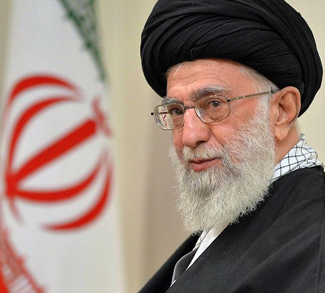It was not even a year ago that former Mossad chief, Meir Dagan, stated that the idea of Israel bombing Iranian nuclear facilities was, “the stupidest idea I’ve ever heard.”[1] He was backed by another former Mossad chief, Danny Yatom, who added that there was little point in Israeli airstrikes as they could only hinder, and not prevent, Iran’s potential to develop nuclear weapons. Yet, as Iran announced further gains in its quest to master the nuclear fuel cycle (translated in many western capitals as another advancement toward Iran’s capacity to build a nuclear weapon), the Israeli PM, Benyamin Netanyahu, was visiting Ottawa then Washington attempting to shore up support for a pre-emptive airstrike against Iranian nuclear facilities.
Netanyahu’s argument is simple: Iran has intentions of building nuclear weapons in the near future. He argues that sanctions will not prevent Iran from pursuing its current path to becoming a nuclear-armed state. Furthermore, Iran will have reached 90% enrichment by mid-2012. The world cannot live with a nuclear-armed Iran. Therefore, if the US and others fail to act, Israel must be allowed to act in pre-emptive self-defense by launching an attack on Iran’s nuclear facilities before it crosses the so-called ‘redline’ sometime before this summer. In short, PM Netanyahu is insisting that Israel be allowed to bomb Iran, like it bombed the Iraqi nuclear reactor at Osirak in 1981, and the Syrian nuclear site Deir ez Zor region in 2007.
However, Israel and the West are working on different timelines with regards to invoking the ‘military option’. Israel is advocating immediate action while the US and the EU are still staunch supporters of engaging in diplomatic talks and the continued use of strict sanctions. The Israeli government claims that the situation is dire. Their theory is that by the summer of 2012 the uranium enrichment plant at Forno, located under a mountain and virtually impregnable, will be fully operational. If that point is reached it will be too late for Israel to act unilaterally against Iran. This is Israel’s redline.
Netanyahu is currently drawing support from various factions in Washington, Ottawa and London – particularly among Republicans and Israeli lobby groups. However, Israel’s policy line has thus far failed to convince high ranking government officials that the military option is the correct one. Much to Israel’s dismay, western governments appear to be waiting for hard evidence of Iran’s attempt to develop nuclear weapons, an attempt which will take at least two more years to succeed according to American intelligence officials.[2]
While the Secretary of Defense, Leon Panetta, warned that Israel alone may strike Iran’s nuclear facilities sometime this spring,[3] President Obama has held firm on advising Israel to allow time for sanctions to take effect. In Netanyahu’s recent visit to the US he gained support from many non-partisan individuals and organizations of influence in Washington, but failed to persuade the President to draw ‘redlines’ in the sand with Iran over when diplomacy would end, and at which point (in time or circumstance) the ‘military option’ will go into effect. By convincing the US to join in giving Iran an ultimatum – be induced by our carrots or feel the sting or our sticks – PM Netanyahu hopes to force Iran to relinquish its alleged nuclear weapons ambitions, as it was verified that it had in 2003 when faced with the threat of military intervention.[4]
Others, including the Chairman of the Joint Chiefs of Staff, remain unconvinced that Iran will fold easily under the pressure of a military strike. They have also voiced concern over the fallout of such a campaign. First, the general consensus is that even a joint air campaign taking weeks, if not months, is likely to severely damage and disrupt, but not stop, Iranian uranium enrichment. Second, Iran will certainly close the straight of Hormuz, preventing 40% of the international market’s oil from reaching the market. And third, Iran will likely retaliate militarily with unpredictable consequences that could likely draw the US and Israel into a broader war in the region.
With the US military advising against attacking Iran, and US intelligence confirming that there is no evidence that Iran has resumed its nuclear weapons program since abandoning it in 2003,[5] the Obama administration is avoiding making threats. It is an election year, and while the Obama White House does not want to antagonize Israel (and their influential AIPAC colleagues), going to war against Iran, sky-rocketing the cost of oil and gas, and throwing the whole region into turmoil (again) is not winning material for a re-election campaign. Besides, sticking to its current strategy of diplomatic discussions despite widespread opposition will only serve to legitimize military action if and/or when it occurs. In the meantime, the tightening series of crippling embargos and sanctions the US, EU, Canada and others have imposed are intended to induce Iran into abandoning sovereignty over its nuclear program. As with Iraq, if sanctions fail to influence Iran’s behavior, then they will at the very least starve the state of the resources it needs to defend itself when the ‘military option’ is deemed necessary by the US and/or Israel.
Like the United States, Canada is wary of Iran’s nuclear ambitions but has been reluctant to support military intervention. Canadian PM, Stephen Harper, has been clear that he has ‘no doubt’ Iran is pursuing a nuclear weapons program. He has expressed deep concern over the likely propensity of ‘fanatically religious’ individuals or groups within the Iranian government to use weapons of mass destruction for ‘religious or political purposes.’[6] Thus, Canada has been part of a growing group of states that have been implementing increasingly aggressive financial sanctions and oil embargos, above and beyond the UNSC sanctions portfolios, in hopes of influencing Iran into relinquishing its nuclear program.
While Canadian foreign policy remains staunchly critical of Iran, when Netanyahu recently arrived in Ottawa pressing for Canadian acquiescence for an Israeli air-strike against Iranian nuclear facilities, PM Stephen Harper maintained that sanctions and diplomacy must be the tool to convince Iran to change course. Asked if Canada would support a pre-emptive air strike on Iran, Harper stated, “[w]e of course recognize the right of Israel to defend itself as a sovereign state, as a Jewish state. That said, we want to see a peaceful resolution of this issue and we want to see every action taken to get a peaceful resolution of the situation.”[7] In this regard, the Canadian government has been lock-step with the Obama administration in imposing increasingly tough sanctions on Iran rather than tough talk of military action.
Canadian Foreign Affairs Minister, John Baird, clarified the government’s position further when given the opportunity during question period. “We obviously don’t want to see any military action. That’s why we’re working hard with the United States, with the European Union, with the United Kingdom and others to take every single diplomatic effort necessary to try and ensure that Iran doesn’t achieve nuclear weapon status. We believe right now the best course to take is every single diplomatic action and that’s exactly what Canada is doing.”[8] Yet, even as Canada champions the use of diplomacy in dealing with Iran, the Canadian PM, like the President of the US, is leaving, ‘all options on the table.’
Certainly, any US/Israeli attack on Iranian nuclear facilities, and the following consequences of Iranian reprisals, would slow the flow of oil through the Straight of Hormuz, thus increasing the price of Brent crude on the international markets. This would, in turn, have a positive effect on the demand for production of Canadian tar-sands oil. The high processing cost of tar-sands oil means that the international market price of oil needs to be high in order to produce a viable profit margin. While technologies employed at the tar-sands are improving the cost-benefit ratio, harvesting tar sands oil remains one of the most expensive methods of oil extraction. Another effect of an attack on Iran is that Canada might have to implement safeguards to mitigate a potential Iranian retaliatory strike against US forces in Afghanistan, in which Canadian military personnel might be potential collateral damage.
As tensions escalate between western states and the Islamic Republic of Iran, the increasingly bellicose rhetoric on all sides has led to a speculation frenzy on what will happen next as the situation apparently slides towards the ‘military option.’ However, as most analysts are forecasting the failure of the sanctions to prevent Iranian intransigence, the speculation-machines are now focusing on when, not if, an attack on Iran’s nuclear facilities will take place, and who will carry it out; the US, Israel or indeed both.
The question few seem to be asking, and fewer answering with any pragmatism, is what will Iran do if/when they are attacked? A successful aerial bombardment of Iran’s various nuclear facilities, one that has the potential to destroy existing nuclear capabilities, would have catastrophic consequences for Iran. The nuclear radiation clouds arising from the blasts would carry for hundreds of kilometers, potentially effecting millions of civilians. Naturally, Iran has defenses that must be removed before an attack takes place. An Iranian retaliation can also be expected. Therefore, the conventional weapons Iran currently possesses must also be neutralized in any broader attack.
In order to get within striking range of the possible nuclear weapons development site at Parchin, the nuclear reactor at Bushehr, the Uranium conversion unit at Isfahan, the Arak heavy water facility, or the uranium enrichment plants at Natanz and the newer Fordo site near Qom, where the facility is sheltered under a mountain, a potential attack must pass through Iranian air defense. While it is recognized that the primary Iranian air defense system, seven Russian-made S-200 SAM firing batteries, is in serious need of an upgrade, there have been unconfirmed rumors since 2009 that Russia might have delivered some of the five S-300 SAM systems it contracted to Iran in 2007. This upgraded S-series SAM system is widely recognized as the most effective anti-aircraft missile system with marked improvements from the S-200s. The longer range capabilities of the Russian upgrade poses a threat to any aerial attacker, though it has been suggested that the new American F 35 stealth Lightening joint strike-fighter is capable of evading and destroying the S 300 systems.[9] While Iranian officials have stated that they have received some of the S-300 batteries, two via Belarus, and two via other sources, perhaps Croatia, both countries have denied any such transfers. Russian officials have also denied any such transfer, and Russian President, Dimitry Medvedev, signed a decree in September, 2010, banning the sale of the S-300 systems in accordance with the UN Security Council Resolution 1929. By the end of the same year Iran announced it had begun production of its own version of the S-300.
Clearly, with the Shia-Alawite minority that is propping up Assad’s regime in Syria teetering on the brink of a civil war with the Sunni majority (backed by the west and many Arab states) and a Shia Hizballah in government in Lebanon, an attack on the core of the Shia stronghold in Tehran would have far reaching global consequences. In the absence of irrefutable evidence that Iran is covertly attempting to build an atomic weapon, it is premature for an air strike against Iranian nuclear facilities, as is being suggested by the state of Israel. To punish Iran for a crime it has yet to commit, or for which there is no concrete evidence, is itself a crime and antithetical to western judicial values. However, despite this, and the opinion of many leading experts who warn against the pitfalls of any pre-emptive strike, the Israeli government remains pro-actively lobbying support for an attack, maintaining that the state of Israel’s very existence rests in the balance.
Notes:
[1] “Defense officials weigh in after Mossad chief brands Iran strike a ‘stupid’ idea.” Haaretz Service 08/05/11 http://www.haaretz.com/news/diplomacy-defense/defense-officials-weigh-in-after-former-mossad-chief-brands-iran-strike-a-stupid-idea-1.360497?localLinksEnabled=false
[2] BBC Q&A: Iran Nuclear Issue. 06/03/12
http://www.bbc.co.uk/news/world-middle-east-11709428
[3] Special Report: Energy Wars – “Flirting with Death” Paul Cochrane 01/01/12 http://www.executive-magazine.com/getarticle.php?article=15225
[4] Iran and the Bomb. Seymour Hersh. The New Yorker. 06/06/11
http://www.newyorker.com/reporting/2011/06/06/110606fa_fact_hersh
[5] Ibid.
[6] “Iran ‘frightens me,’ Harper says,” CBC exclusive interview with Peter Mansbridge. 17/01/12. http://www.cbc.ca/news/politics/story/2012/01/17/pol-harper-iran.html
[7] “Harper takes a cautious tone over Israeli stance on Iran”, CBC News, Meagan Fitzpatrick, 02/03/12. http://www.cbc.ca/news/politics/story/2012/03/02/pol-netanyahu-visit.html
[8] Ibid.
[9] “Iran may have lined up S-300 SAM systems,” Doug Richardson, Janes Defense Weekly, 01/09/08. http://www.janes.com/products/janes/defence-security-report.aspx?id=1065927091




